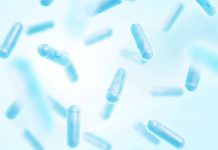
For some people healthy eating is complicated. In our quest for good health, we are bombarded with terms we may not fully understand. Words like antioxidants, phytonutrients, omega-3, gluten, probiotics, and complex carbohydrates are part of our everyday jargon and yet many of us are still hard-pressed to know what to eat on a daily basis. Our obsession with individual nutrients has resulted in what Michael Pollan calls the “American Paradox”: the more we worry about nutrition, the less healthy we seem to become.
In his book In Defense of Food: An Eater's Manifesto , Pollan’s advice on eating well comes in three parts. Firstly, and simply, eat food. This means we should eat things our grandmothers would have recognized as food. Secondly, eat mostly plants. This means making more room on your plate for vegetables, fruit and whole grains and less for meat and animal products. Finally, he advises us not to eat too much, which is perhaps the hardest advice of all to actually follow.
Read more about what real whole food really means
In another of his books, Food Rules: An Eater's Manual , Pollan expands on the three parts from his manifesto and gives us his rules on how to eat. He boils down all of the complex information we can easily get caught up in, and turns it into practical steps we can do every day. Any one of the sixty-four rules provided can be beneficial to our health, and although I’d like to start with rule number sixty-four, “Break the rules once in a while,” let’s start at the beginning: “Eat food.”
Eat food. Real food.
Rules #4 and #5 -“Avoid food products that contain high-fructose corn syrup” and “Avoid foods that have some form of sugar (or sweetener) listed among the top 3 ingredients”. There are dozens of types of sugar used in foods today. Sugar is increasingly being added to foods that have not traditionally contained it like crackers, condiments and breads. Too much sugar in any form wreaks havoc on our blood sugar and insulin levels. Forget about too much fat making us fat, too much sugar will definitely make us fat.
Rule #9 – “Avoid food products with the word ‘lite’ or the terms ‘low-fat’ or ‘non-fat’ in their names”. When fats are removed from a food, they are often replaced with lower calorie carbohydrates (sugar!) to boost the flavor. The supposed “low-fat” movement from the past couple of decades has actually resulted in an increased weight of seventeen pounds for the average male and nineteen pounds for the average female since the end of the 1970s.
What is “real food?”
Rule #25 – “Eat your colors”. The different pigments in fruits and vegetables reflect the different nutrients they contain: things like carotenoids, anthocyanidins, and flavonoids. Science shows us that each of these individual nutrients are valuable for our health in some specific way, so the more color we eat, the more benefits we get.
Rule # 36 – “Don’t eat breakfast cereals that change the color of the milk”. While some might see this as being in direct conflict to rule #25 above, it seems fairly obvious that these cereals would be highly processed and most likely in opposition to rules # 4 and 5.
Everything in Moderation!
Rules # 45 and #49 – “Eat less” and “Eat slowly”. In following these rules, we will chew our food better which ultimately results in better digestion and fewer gastro-intestinal complaints. Eating more slowly also means we won’t eat as much because we are more likely to feel satisfied sooner and stop eating before we are stuffed.
Rule # 57 – “Don’t get your fuel from the same place your car does”. Gas stations now make more money selling food and cigarettes than they do selling gas. Aside from a few items, the things sold as food in gas stations violate practically all of the sixty-four rules in the book.
Read more about why people overeat and how to stop
Pollan’s message is simple, and that’s perhaps the strongest and most attractive aspect to his argument. As much as it’s important to know all you can about what goes into your food, how it’s made and where it comes from, all of that information can oftentimes be overwhelming, and interfere with your attempt to eat and live a healthy life. It’s better to make small steps toward a healthy lifestyle than to feel helpless about making a change.
Keep it simple and you will succeed!
Image: Nan Palmero










